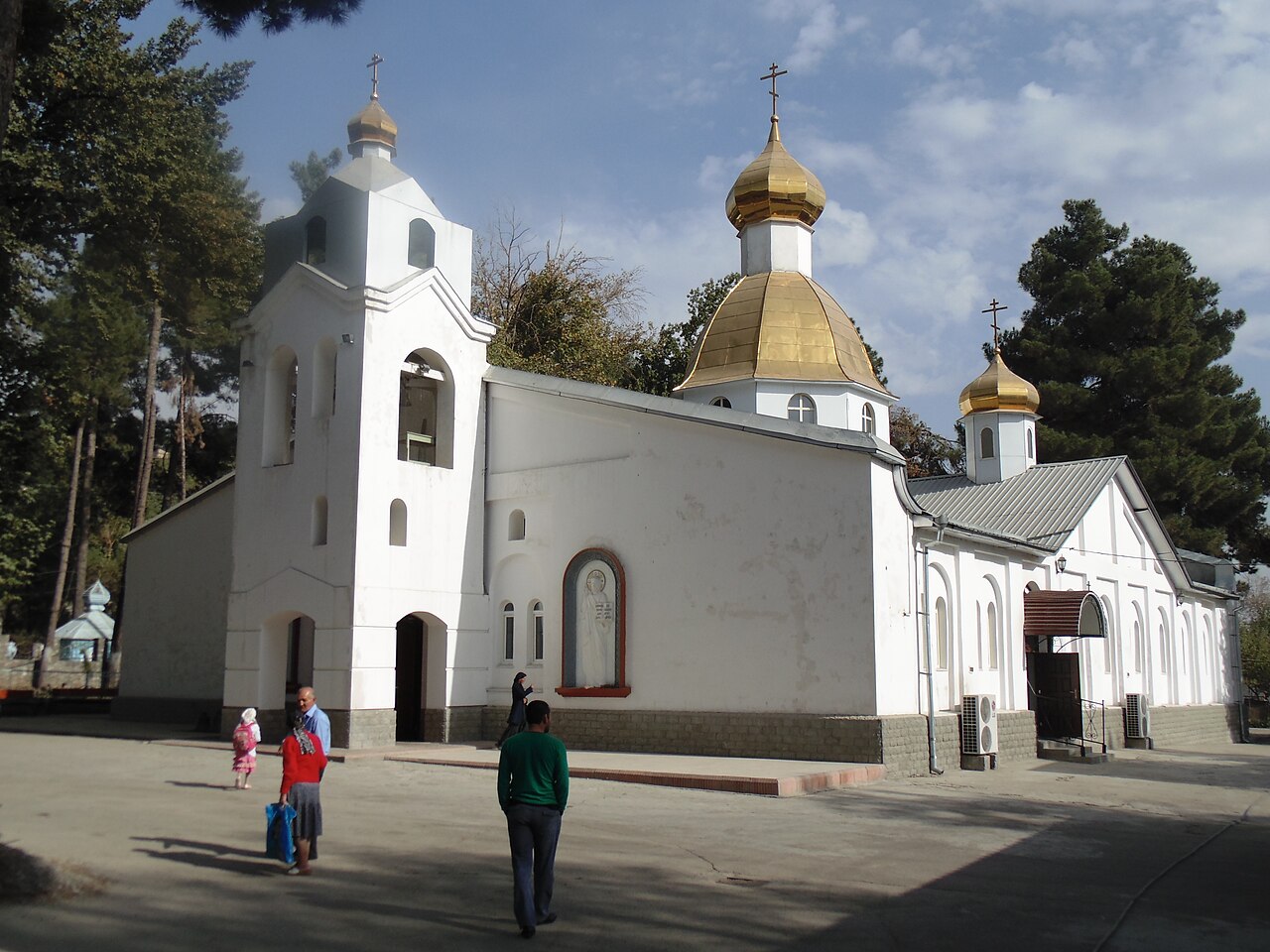
A Tajik Christian working with the Free Burma Rangers (FBR), a faith-based organization on the frontlines of the Burmese Civil War with which this author is also involved, uses the pseudonym Richard Patterson to protect his identity. His work helping Afghan Christians, who may face death if their conversions to Christianity are discovered, and monitoring their plight in Tajikistan puts him at serious risk.
Richard highlights the contradictions in Tajikistan’s laws on religious freedom, particularly in a country where 96% of the population identifies as Muslim. While the Constitution ostensibly guarantees the right to practice one’s faith, he says, “It’s an authoritarian country, honestly. The law contradicts itself, and the Constitution contradicts itself.” He elaborates that proselytism, sharing one’s faith, and house gatherings are all forbidden. “Children cannot participate in worship,” he adds.
These restrictions leave many Christians in Tajikistan living under constant fear of discovery and persecution. Richard recounted instances of oppression he had witnessed, describing how churches were fined heavily by the government simply for allowing children to attend worship services. He explained that proselytization is illegal, adding, “You will end up in jail.”
Richard shared the story of a fellow believer, Bahram, who was arrested after authorities discovered more than 20 Bibles in his possession. “He was in prison for eight years,” Richard said. He also emphasized that Tajikistan is among the more conservative Islamic countries in Central Asia, making life even harder for Christians trying to practice their faith.
The Constitution of Tajikistan, under Article 26, technically guarantees freedom of religion, allowing individuals to choose and practice any faith—or none at all. However, in practice, this freedom is heavily restricted. Religious activities outside state-controlled institutions are prohibited, and the government imposes strict regulations, including registration requirements that many minority groups, such as non-Orthodox Christians, struggle to meet. This effectively criminalizes their activities.
Historical Christian groups like the Russian Orthodox Church are tolerated due to their limited outreach to Tajiks, but non-Orthodox and non-Catholic groups face significant barriers. In 2018, laws further tightened restrictions, banning the registration of new churches, and a 2022 directive reinforced this prohibition. Christians risk harassment, arrest, and disruption of services, while unregistered gatherings or religious materials are subject to fines and confiscation.
Richard explained that while conversion to Christianity is possible in Tajikistan, it comes with severe consequences. Converts from Islam face intense pressure from their families and communities, where the belief that being Tajik equates to being Muslim is deeply ingrained. This pressure is particularly harsh in rural areas, where hostility from local communities is more pronounced.
He described the challenges converts endure, including physical violence to force them to recite the Shahada, the Islamic declaration of faith, as a sign of returning to Islam. Those who resist may face further abuse or complete ostracism. “They will tell you this: when you die, nobody will bury you, and nobody will come to your wedding,” Richard said. Converts are often disowned by their families and left to survive on their own as outcasts, struggling to rebuild their lives.
Although it is technically possible for Christians to hold government jobs, Richard noted that such opportunities are rare. “I am not aware of a Christian who is the head of anything,” he remarked, underscoring the systemic discrimination they face.
Tajikistan operates under a complex and often contradictory system of governance that blends secularism, socialism, and Islam, all tightly controlled by President Emomali Rahmon, who has ruled with an authoritarian grip since 1994. Officially, Tajikistan is a secular state, but religious freedom is systematically undermined by restrictive laws and policies shaped by lingering communist influence and a deep mistrust of religious groups.
President Rahmon has systematically eliminated political opposition, with the Islamic Renaissance Party of Tajikistan (IRPT) being one of the primary targets of his crackdowns. “He got rid of all his opposition,” Richard explained, “and the only opposition left is Islamic opposition, like the Islamic Movement of Tajikistan.” Rahmon’s government positions itself as a defender against extremism but uses this as justification to suppress both Muslims and Christians.
The suppression of Islamic practices is a cornerstone of Rahmon’s policies. In June 2024, the upper house of parliament, the Majlisi Milli, passed a law banning hijabs and further curbing Islamic influence. The legislation specifically targets “alien garments,” widely understood to include Islamic attire such as hijabs, and builds on an existing unofficial hijab ban in public spaces. This law also restricts children’s participation in Eid al-Fitr and Eid al-Adha celebrations, adding to long-standing prohibitions that have barred minors from attending mosques since 2011. Critics view these measures as part of a broader campaign to suppress public expressions of faith.
Rahmon’s earlier actions include banning hijabs in schools in 2007 and later extending the ban to public institutions, forcing men to shave their beards, and temporarily closing Islamic bookstores. In 2017, he criticized women for wearing “foreign” black attire, sparking a government campaign promoting traditional Tajik clothing. By 2018, a “Guidebook of Recommended Outfits in Tajikistan” was published, encouraging citizens to adopt “suitable” dress codes.
Religious groups, including Protestant Christians, face additional suspicion due to their perceived association with Western influences. Richard noted, “Protestants are always associated with the West, so they don’t trust Christians or even Muslims.” While the government is officially secular, many officials, including high-ranking members like police chiefs, are practicing Muslims who simultaneously enforce restrictive laws on religious expression.
This blend of secularism and Islam creates what Richard described as “Islamic socialism,” where former communist leaders incorporate Islamic practices into their personal lives while maintaining strict control over religious activities. He added that Tajikistan claims to be a secular state, but many rules and social norms repress religion. “Christians face problems both from the government and from their families,” he said.